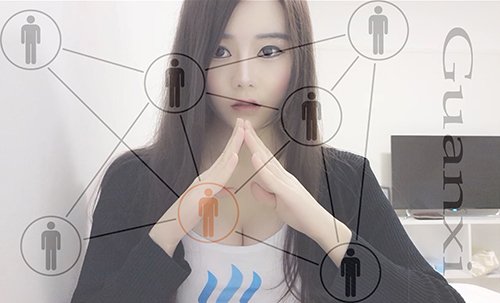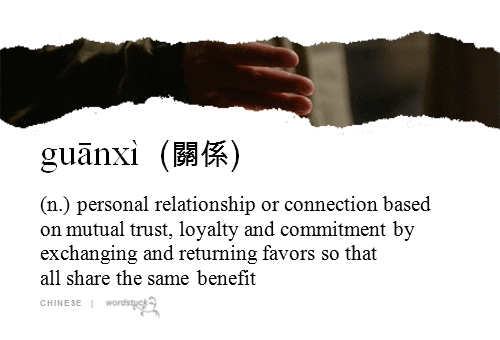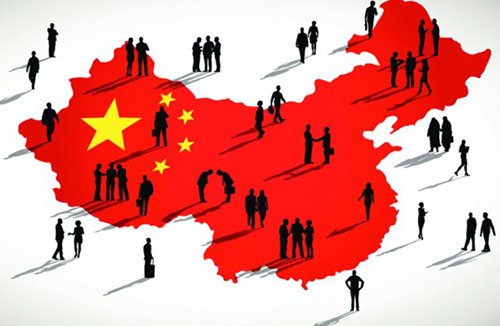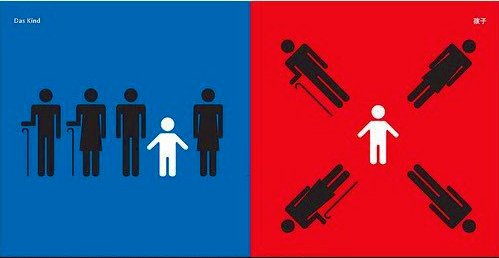Dear Steemit friends:

Following my last post about cultural exchange, a term "Guan Xi", which shares similar themes was mentioned and an interest drawn on my view of this term. (Thanks @faddat !) If you missed my last post about the culture of private dining, you can read it Here.

The character 'guan' is actually a pictorial depiction of its meaning. Symbolically showing a door enclosing a web of threads. It is evident that the etymology of this character embodies the notion of closed groups of 'webs' of people.
Today, i'll discuss the differences between how people value and form relationships in the west, and contrast this with how they are formed in Chinese societies.
Relations by West and Relations by East
1.In the west, people are largely functional in society by virtue of their individual self. In China, less emphasis is placed on individuals, instead the function of groups are more important.

• Western culture has long prided itself on the freedom and independence of it's individuals. Most aspects of society encourage the individual to act within and be governed by the scopes of law and at the same time offer ideals such as equality and freedom of speech. This is the basis for how inter-personal relationships are also formed.
• Whilst Chinese society is also made up of individuals, there is a stronger tendency to be cohesive with groups for the purpose of advancing ones own interests. It extends as far as the individual foregoing their personal interests for the betterment of their group. Thus, the freedom of the individual is on some level limited. In-fact, the historical establishment of Chinese society has long put the rule of man ahead of law or political control.
Thus, the Chinese society can be thought of as a huge interconnected network of sub-groups composed of the individuals contributing to the influence of the group. The most obvious of these groups and one that almost all individuals will be part of is of course their family, but aside from that, friendship groups are also an important unit that empowers its individual members.

These relationships built by blood and emotion offer the individual a sense of purpose and belonging and is very much their support structure throughout their life. This is part of the reason why Chinese people are willing to spend the extra money to dine in private rooms; it's important to them for fostering these relationships.
These concepts are often reflected in real life:
• In the West, a children's mistake is dealt with by educating the child. In China, the Chinese will blame the parents of the child for not educating them properly. This binding of parent to child is an example of the cohesion of you and your relations and exemplifies the importance of a strong family relationship when dealing with parties outside of your group. Hence, the relationship between a parent and child is important because each person represents their group as a whole. Filial piety is an ideology that helps to maintain this cohesion, and within this framework, it has stricter etiquette; for instance in the west, it is normal to call your parents by their names, but this is frowned upon in China as doing so would mean you are not being filially obedient. I cover a little more about filial piety in a previous post which you can find here.

• Of course, it's not just the relationships between parent and child that must adhere to group ideology. Once inducted into a group, it is the individual's responsibility to uphold the values of the group, contribute their part, and follow the etiquette of the group narrative. Some relationships outside of parental and child include teacher and student as well as boss and employee. It is almost always a relationship formed with un-equal status within that group with one being the senior and the other a sub-ordinate. The sub-ordinate understands that his duty within the group is to comply for the benefit of the group so a sub-ordinate will rarely dispute mistakes made by their seniors.
2. Westerners value their rights and obligations whilst Chinese people value mutual affections
In family life:
• It is not uncommon for western parents to raise their children and take full responsibility up till the age of 18. After their children have reached that age, they are considered independent adults. One of my friends in the UK still lives with their parents and has to pay rent every month.

• In China, the situation is contrasted by parents who take responsibility for their children throughout their life, not just till they're 18. In-fact, parents will worry about their children's financial condition all their lives. Most of my friends who have stable jobs will also accept parental subsidies. In one extreme case, the mother of a person I know, sold two houses just to hold a big wedding ceremony. This is an act of kindness and mutual affection through which the depth of the relationship between the parent and child is evident. In China, blood relationships and family play the most important role in people's lives.
Office life:
• In Western companies, employees value their rights and responsibilities including their right to over-time pay. In meetings, employees feel entitled to raise their own ideas and have a voice in the discussion.

• In China, building the relationship between employee and boss is extra important. After all, your career social circle largely determines how well you may progress your career. My friend is a good example; he joined a company hoping to progress his career further so he worked overtime often till 2am. However, he didn't ask for compensation working overtime as a gesture for showing his commitment. When taking part in conference calls and meetings, he was also reserved and took a back bench role.
3. Westerners keep rational distance in the relationship, but the Chinese like intimacy.
• Establishing a relationship in the west often means respecting the other parties privacy. The response to people offering aid is often met with subtle refusal as they do not wish to be categorized under vulnerable groups.
• In China, good relationships mean the sharing of secrets. Even if you're not related, you treat those in your group like family. For instance, when dining with friends, it's often customary to fill each other's bowls with food. A relationship between husband and wife also has no secrets between them, in fact, the property is always managed by the woman.

Although Guan Xi carries with it a broad set of meanings, commonly used to refer to relationships between people, it's weight in society is vastly different. As discussed in the previous article about filial piety, the Chinese have historically followed the Fengjian or 'Feudal' system where it's social structure is formed through a decentralized system of governance.
Land was divided between clans and their relatives and the strength of the family unit often determines the amount of land awarded. Although it is a bit of an oxymoron today given the Chinese mode of governance, history has its way of expressing and acting through society even as society itself evolves. Guan Xi therefore is a living artifact of an ideology that has remained in society and culture to this day. Although it is not ascribed into law, it's importance cannot be over-looked.
I hope this discussion broadens your view of the Chinese way of establishing relationships, and I will definitely be returning to this topic to discuss it further in subsequent posts!
(Sources:1,2,3,4,5,6,7)
亲爱的Steemit朋友们, 首先谢谢@faddat的提议,在我的上一篇文化差异的文章中,他提示我大家很感兴趣关于“关系“的文章,所以这篇文章在上一篇的基础上孕育而生的。上一篇文章我们讨论了为什么中国人喜欢在包厢里吃饭,而西方的文化里没有这个诉求?文章你可以在这里找到。 今天我们首先来谈一谈在我眼中,中西方人对关系的态度吧!
1. 西方以个人为单位,中国以群体为单位在西方文化里,个人是自由独立的。在法律许可的范围内自由、平等、独立,是西方的人际基础。
中国人虽然也认为社会由个人组成,但是个人却很难离开社会而生存,所以个人的自由相当有限。当然人与人的互动,也不能完全由法律来控制。所以从古至今,都是人治大于法治和政治,整个社会就是巨大的关系网。
当然,观念上的差异常常体现在生活中的小事:
孩子做错事,西方人会教育孩子,而中国人会怪罪孩子父母没有教育好孩子。
2. 西方人讲权利义务,而中国人讲情分 西方的父母只抚养自己的孩子到18岁,18岁之后孩子的经济和生活都独立了。
而中国的父母,如果父母在孩子18岁后不再有经济支援,会被社会看作狠心。
在西方的公司里,员工考虑权利和义务,从来都按时下班,加班会算加班费。
而在中国,员工和老板建立情分太重要了。
3. 西方人在关系中保持理性的距离,中国人喜欢亲密无间比如西方人的在朋友交往中,十分尊重隐私。西方的老人走路不希望别人扶,因为不希望自己被当作弱势群体。
在中国,无论朋友之间还是夫妻之间,交往中都希望亲密无间的关系,朋友的秘密一起分享。饭桌上不停的为他人夹菜,看到别人需要纸巾,就立刻递上。夫妻之间更希望财产透明,甚至都归女方管理。
很高兴可以和朋友们分享关系在中西方文化里的差异和我亲身经历的故事,再接下来的文章,我想和大家一起探索中国的社会离不开关系的秘密。大家有什么想法或者补充,请不要介意提出,我们一起讨论哦!
If you are interested in my other blogs related to Culture Exchange please check out these other blogs below^^
The Anti-social way of Socializing in Asia Part 2. —— Why Asian people enjoy having dinner in a private room?
The Anti-social way of Socializing in Asia.
Why you don't see Chinese girls wearing Bikini's at the beach?
The Marriage Dilemma.
Having a Naked Marriage isn't a bad idea at all!
China's leftover women - Single and not necessarily successful!
Lost in Translation - Filial Piety

